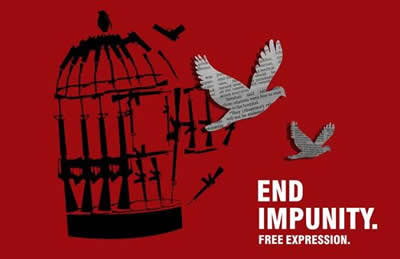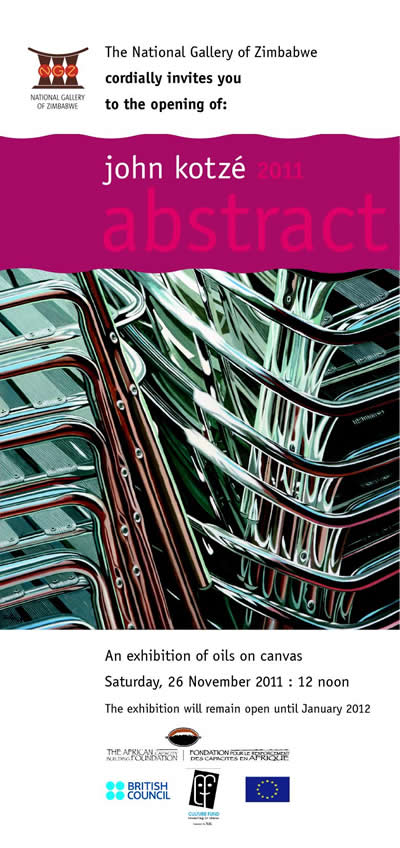Archive for the 'Media' Category
Give us your feedback!
Monday, November 21st, 2011 by Amanda AtwoodDid you phone our David Beckham in DZ audio drama?
If so we want to know what you thought of it.
Please complete our online survey
Women with Goals – International Images Film Festival
Wednesday, November 16th, 2011 by Amanda AtwoodGet some culture! Get to the International Images Film Festival for Women. This year’s theme: Women with Goals.
Download the programme here
Debunking the myth of the traditional Zimbabwean woman
Tuesday, November 15th, 2011 by Upenyu Makoni-MuchemwaI don’t think that when Rumbi Katedza wrote Playing Warriors she had a great message in mind. I think she simply wanted to tell a story she and the women she knew could relate to. The film is a snapshot in the lives of Nyarai (Kudzai Sevenzo), Maxi (Nothando Lobengula) and Nonto (Prudence Katomeni-Mbofana), three women in their late twenties. Maxi is an irreverent lawyer who is having an affair with a prominent politician. Nonto is the quiet friend who is about to be married and Nyarai, the central character, is a high flying career woman with a meddlesome mother.
From the beginning of the film it is obvious that Nyarai does not fit in the mould of the traditional Zimbabwean girl. The film opens with a dream sequence set in ancient Zimbabwe. A young warrior places the lion he has slain at Nyarai’s father’s feet. He, apparently, is seeking Nyarai’s hand in marriage. Nyarai’s father looks to his wife for approval, this she gives with a smile. Everything appears as one would expect on such an occasion. The camera focuses on Nyarai’s face and the audience finds that rather than being breathless with excitement at having such gift presented for her hand, Nyarai does not look as pleased. In fact she almost looks annoyed.
Traditional Zimbabwean women are supposed to want marriage above everything else. Particularly to a man who so obviously can provide. In the film is it understandable that Nyarai will not commit to her ridiculously self absorbed toy-boy Che. Their relationship is simply about sex. It is he who needs her to survive. Nyarai’s relationship with Leslie, a well-heeled divorcée arranged for and heartily supported by her mother is far more complex. He goes to great pains to woo her, closing down a restaurant just for her and performing that rarity among Zimbabwean men, cooking her a meal. Even the audience feels that there might be a happy ending. But Leslie is merely mutton dressed as lamb. He confesses a bad relationship with his children, and gives them the kind of parenting that reduces his role in their lives to a bank account with a face. He is arrogant, impatient and only acknowledges Nyarai’s relevance as his woman, not as her own person. This film is bold in claiming that women need more from their men than material security. Despite his money and their sexual chemistry Nyarai rejects Leslie because he doesn’t listen and therefore doesn’t understand her needs.
Nyarai’s mother, who embodies the traditional and cultural expectation placed upon young women, is perplexed by her oldest daughter’s impractical insistence on marrying only for love.
Maxi’s brazen and abrasive rejection of her burden of expectation provides an alternative angle to Nyarai’s gentle questioning. Fiercely independent, Maxi is everything a good Zimbabwean girl shouldn’t be. She smokes, she’s loud in her denouncement of traditions and cultural roles and she’s having sex with a married politician for pleasure and professional gain. But despite herself and everything she knows to be true about her lover, she falls in love with him.
In contrast to Maxi’s and to a lesser extent Nyarai’s tumultuous relationship with tradition is Nonto’s active acceptance of it. The film takes the audience through her experiences as a bride. When she announces that she is getting married her friends question her decision not to have premarital sex and how she would cope with the disappointment should he be a bad lover. But Nonto is steadfast in her faith in her relationship, and as a born again Christian in the wisdom of her God. The film also depicts the processes involved in traditional marriages. There is a hilarious roora scene, where the groom’s munyayi (negotiator) uncomfortably pleads with Nonto’s uncles to lower the rusambo (bride price), and another showing the bridal party practising masteps (wedding dance) with a dictatorial choreographer.
On the surface Playing Warriors is a feel good chick flick. But it is also a film that documents the deeper change within Zimbabwe. It is a bold in showing independent free-thinking women who are in full-ownership of their sexuality, and demand more than material fulfilment from their relationships. It is also one of the first feature films about Zimbabwean women that does not characterise them as victims of male-driven tradition. I think the greatest lesson of the film is that it is possible for traditions and cultures to evolve, and change is not always about leaving the values that are important, such as family and community, behind.
Art speaks out
Friday, November 11th, 2011 by Bev ClarkFrom Pambazuka, an article on one of my favourite artists, Kudzanai Chiurai:
State of the nation, according to Kudzania Chiurai
Born in 1981 in Zimbabwe, Kudzanai Chiurai is an internationally acclaimed artist now living and working in Johannesburg, South Africa. He was the first black student to graduate with a BA in Fine Art from the University of Pretoria. Highly regarded as a leading voice of his generation, Kudzi has made a name for himself as a thought provoking artist who uses his art to highlight the many fallacies of our continent with specific focus on African leaders and culture. Chiurai’s early work focused on the political, economic and social strife in his homeland and has since evolved to reflect a continental dialogue that puts the state and its people at the centre of progress or the lack thereof. Seminal works like ‘Presidential Wallpaper’ depicted Zimbabwean president Robert Mugabe as a sell-out and this led to Chiurai’s exile from Zimbabwe.
Armed with a paint brush and a strong desire for change Kudzi has become somewhat of a legend in the niche world of pan-African urban culture. For someone who has achieved so much in a short space of time with bodies of artwork that speak loudly, his humility, sensitivity and introverted personality are humbling, making for an interesting harmonious contrast between the artist and his work.
His latest presentation titled ‘State of the Nation’ is intended to explore aspects of a constructed African state that bears scars of political and cultural discourses. On a continent that has experienced more violent conflicts than any other, this exhibition follows an individual’s narration of events that lead up to the inaugural speech by the first democratically elected president. The conflict that exists between cultural vistas and postmodern political narratives is evident in Chiurai’s work. Themes range from rituals, genocide memories of Rwanda and the all too familiar propaganda machine of the state to win hearts and minds of the nation. The vivid and curated portrayal of political scenes and the fear it imposes on the general populace is both profound and sad. The political truth of our continent is captured in every line and colour and together the state of all our nations is laid bare.
Melissa Mboweni curated the exhibition in partnership with the Goethe Institute and collaborations with photographer Jurie Potgieter, singers Thandiswa Mazwai and Zaki Ibrahim as well as clever use of technology brought this body of work to life. Chiurai references child and woman soldiers, African liberation movements and civil wars. He tracks the similarities between societal, political and ideological doctrines of nations in tumultuous times of transition with the often-ignored impact these cacophonous changes have on citizens. The juxtaposing of public and private were highlighted in performances that took place in the streets of Newtown and in the exhibition space that fostered private conversations about the state of our own nation as well as the artist’s work. A sound and technology installation scores the gallery experience. The influence of hip-hop in Kudzi’s own life is evident in his installations.
In a style similar to previous bodies of work such as ‘Dying to be Men’ series and ‘Black President’, Chiurai’s constructed environments are enticing, seductive and explore real casualties of African independence and critically examine the role of state public servants in advancing democracy. This ‘State of the Nation’ exhibition is a timely theme that comes at a time when the continent is grappling with its democratic identity and the role of the state in bringing real freedom and justice to its people.
As an art lover and a follower of Kudzi’s work, I’m hoping his social themes will evolve to depict some of the goodness on our continent and the power of the individual in bringing about change in their own community regardless of the state. Kudzi has the ability, passion and drive to start painting imageries of Africa that shows progress and a people with an undying spirit for survival and entrepreneurship.
- Charles Nhamo Rupare
* Charles Nhamo Rupare is of Shona origin and lives life through the creative eye and dreams of Afrika regaining her dignity and her sons and daughters developing the necessary mental freedom to love peace and communal co-existence. He is an award-winning Afrikan-centred brand specialist, percussionist, writer and a Pan-Afrikan thinker. He is chief editor of www.kush.co.za, a co-founder of Kush Kollective and a Partner of TEDx Soweto.











